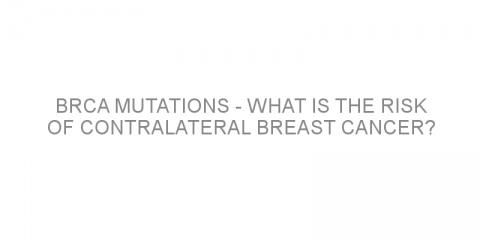In a nutshell The authors aimed to provide guidelines for the use of bisphosphonates (drugs used to slow or prevent bone damage) in early breast cancer. The authors concluded that bisphosphonates should be used as part of a prevention routine in at-risk patients to prevent bone loss as well as cancer recurrence and spread. Some background Patients...
Read MoreBreast cancer Posts on Medivizor
Can pertuzumab improve long-term response rates in HER2-positive breast cancer?
In a nutshell The authors aimed to assess whether adding pertuzumab (Perjeta) to chemotherapy could improve response in women with metastatic (has spread) breast cancer. This study showed that adding pertuzumab to chemotherapy resulted in higher response rates among women with breast cancer that relied on the human epidermal growth factor 2 (HER2) to...
Read MoreCan adding bevacizumab to chemotherapy before surgery improve response?
In a nutshell The authors aimed to evaluate the effectiveness and safety of combining bevacizumab (Avastin) and chemotherapy prior to surgery in breast cancer. This study showed that adding bevacizumab to chemotherapy increased response rates among women with non-metastatic (has not spread) breast cancer. Some background...
Read MoreCardiac events after treatment with trastuzumab
In a nutshell This study investigated the rate and outcome of trastuzumab (Herceptin) associated cardiac (heart) dysfunction in patients after 1 or 2 years of therapy. The study concluded that for patients treated with adjuvant trastuzamab, the occurrence of cardiac events remained low and that these cardiac events were mostly reversible after...
Read MorePreventing nausea and vomiting during chemotherapy
In a nutshell This review was conducted in an effort to update current guidelines for the prevention of nausea and vomiting in patients receiving chemotherapy. According to this update by the American Society of Clinical Oncology, all patients who receive highly emetogenic chemotherapies (treatments known to cause nausea and vomiting) should be...
Read MoreFree Vacation For Adults Affected by Cancer
Stating the obvious: cancer takes an enormous toll on the sick individual and their family. Being stretched financially and every other way-emotionally, physically, spiritually and everything in between-may make the idea of a vacation a low priority. Yet downtime is important. But what if the vacation were free? There are organizations that have made it...
Read MoreWhat effect does weight loss have on bone health in women with breast cancer?
In a nutshell This study investigated the associations of weight loss with bone mineral density and bone turnover in overweight postmenopausal breast cancer survivors. The study concluded that weight loss did not have a negative effect on bone health. Some background Chemotherapy may cause some patients to go through menopause by disrupting female...
Read MoreCan hormone levels predict bone loss?
In a nutshell This study investigated whether baseline levels of the female hormone FSH (follicle stimulating hormone) can predict bone loss. The study concluded that among premenopausal women with breast cancer treated with chemotherapy, baseline FSH levels were strongly associated with subsequent bone loss. Some background In some...
Read MoreLDH as an early predictor of cancer survival
In a nutshell This study investigated the relationship between lactate dehydrogenase (LDH) levels and cancer-specific survival. Researchers concluded that LDH can be used as an early indicator of cancer outcomes. Some background Early cancer detection methods have significantly improved cancer survival rates. There is increasing evidence to...
Read MoreDealing with cancer pain: Low-dose morphine examined
In a nutshell This study compared weak opioids and low-dose morphine in providing pain relief for moderate cancer pain. Researchers concluded that low-dose morphine is more suitable as pain management for moderate cancer pain than weaker pain relievers. Some background The guidelines for cancer pain relief developed by the World Health...
Read MoreBRCA mutations – What is the risk of contralateral breast cancer?
In a nutshell This study looked at the risk of developing contralateral breast cancer (CBC) in patients with or without BRCA mutations. The study concluded that age at the time of first cancer diagnosis is a strong risk factor for CBC in patients with BRCA. Some background Contralateral breast cancer (CBC) is the development of a second new breast...
Read MoreThe benefits of mastectomy as a preventative measure
In a nutshell This analysis examined whether contralateral prophylactic mastectomy is associated with improved survival and occurrence of contralateral breast cancer. The analysis concluded that CPM is associated with decreased occurrence of CBC but not improved survival among patients with increased genetic risk. Some background Women who are...
Read More












